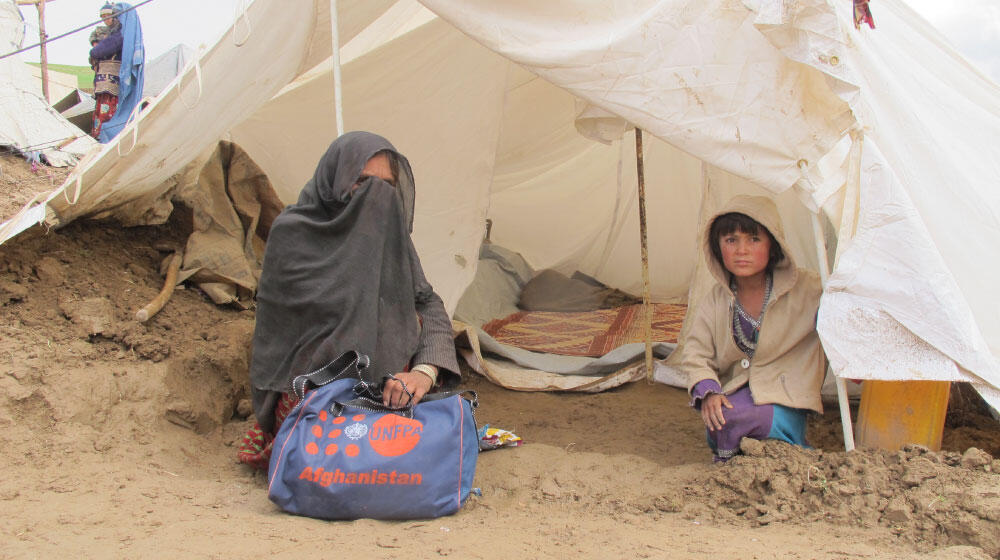UNITED NATIONS, New York – Afghanistan has long faced multiple humanitarian crises. Now, the ongoing increased insecurity and instability are only worsening the situation, particularly for women and girls. The current crisis risks disrupting funding for basic services. Many women and girls will be left without access to health services, including reproductive health and protection services. In all, 18.4 million people are in need of humanitarian assistance in 2021, according to the latest estimates.
Women and girls are always disproportionately affected by crises, lacking access to maternal health services and at increased risk for gender-based violence. In Afghanistan, every two hours a mother dies because of pregnancy-related complications - the highest maternal mortality rate in Asia at 638 per 100,000 live births. With close to 1 in 3 girls married before the age of 18, child marriage and adolescent pregnancy exacerbate maternal mortality and morbidity. For more information, check out our latest situation report.
International funding has supported 70% of health, education and infrastructure budgets. However, the political unrest and ongoing volatility in Afghanistan, coupled with the suspension of international donor funding has already had a harmful – and life-threatening – impact on the lives of many women and girls as access to life-saving health care is disrupted; any further reductions, including in support to education and the provision of basic health and social services, will have devastating consequences, with the danger that the country could descend into a protracted humanitarian crisis.
There is an immediate and pressing need for the international community to step up and respond to the deteriorating humanitarian crisis in Afghanistan at scale, to save lives, prevent further suffering and spark hope for a better future. As part of the broader UN flash appeal for $606 million through to the end of 2021, UNFPA is appealing for $29.2 million to respond to the urgent reproductive health and protection needs of 1.6 million vulnerable women and girls.
Our response will build on years of experience providing services that are tried and tested in the Afghan context and developed with significant community engagement and ownership, which is how we are continuing to deliver through 200 family health houses and protection centres in the current situation.
Additional funding will allow us to increase the number of service centers, expand the level of services provided and reach hundreds of thousands of women and girls with life-saving health and hygiene supplies.
“Right now, our priority is the health and protection of the nearly 4 million women and girls who need urgent humanitarian assistance,” said Dr. Natalia Kanem, UNFPA Executive Director. “We must stand strong and stand together to save lives and protect the fundamental rights and freedoms of women and girls, including their right to participate fully in all aspects of society. ”
Following the suspension of World Bank funding, including to the Sehatmandi project (providing a basic, essential package of health services), the health system is teetering on the brink of collapse. At the same time, needs are growing and countless women and girls will die without immediate support. Our initial estimates indicate that this could lead to 51,000 additional maternal deaths, 4.8 million unintended pregnancies and a near doubling of the unmet need for family planning between now and 2025. A solution for continued funding of the health system is critical.
About UNFPA:
UNFPA is the United Nations sexual and reproductive health agency. UNFPA's mission is to deliver a world where every pregnancy is wanted, every childbirth is safe and every young person's potential is fulfilled. UNFPA calls for the realization of reproductive rights for all and supports access to a wide range of sexual and reproductive health services, including voluntary family planning, quality maternal health care and comprehensive sexuality education.


